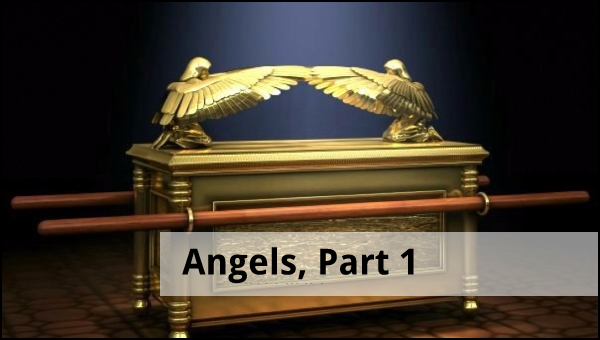By Tyson Thorne

In the study of spiritual beings, demon’s get all the press. It’s only natural, learning about one’s enemy is always more interesting than learning about one’s allies. Witness the amount of news agencies covering ISIS and how few stories there are about the men and women of our military as evidence of this fact. Or, look through the theology section of any Christian bookseller and you’ll find books about demons far outnumber those of angels. Even on this site, we’ve had an entire series on our spiritual adversaries and this will be the first about God’s ministering spirits.
This oversight by theologians in general is difficult to understand from a Biblical perspective. Angels are mentioned 100 times in the Old Testament, and 165 times in the New. In the Old Testament they are mentioned in the earliest of books (Genesis and Job) and their appearances are mentioned in Judges, 2 Samuel, Isaiah, Ezekiel, Daniel, Zechariah, and the Psalms. In the New Testament angels are mentioned during Jesus’ birth, life, resurrection and ascension and extensively mentioned in Acts. Paul mentions them in Galatians and 1 Timothy; Peter notes their relevance in his first letter and additional mentions in Jude and Revelation are instructive. One point that is easily missed and that needs to be understood in all of this is that angels are mentioned by many Biblical authors, over thousands of years. This isn’t a wrong-headed belief held by a few, nor is the topic of angels part of an ancient belief system. Rather, they are an integral part of the Biblical story and their roles are evident throughout history.
We’ll discuss their roles later, first we need to understand a little more about their nature. First and foremost, angels are not divine. Counter to popular mythology and New Age teachings, they are not human spirits elevated to divine service. They are spiritual beings who, while they may appear to mankind as a material being do not actually possess a physical body. Also, they were created with intelligence, emotion and will. They are, like us, beings created by Jesus (Colossians 1.16). Also like us, they were created holy and those who maintained their allegiance to Elohim, still are. Those who fell will, like humanity, be judged (1 Corinthians 6.3). Unlike us, their numbers are fixed (they cannot procreate, Matthew 22.30). They were present at the creation of the earth (Job 38.4-7), so their existence predates ours. According to Psalm 8 and Hebrews 2, Angels are superior to men in might and ability, but are not all-knowing like God and can only be in one place at a time. Since they are spirit beings only, they cannot die.
It is common knowledge among mature believers that the word for “angel”, in both Hebrew and Greek, means “messenger”. We are used to thinking of them in this capacity alone, but they have a great many other roles as well. These roles are often (but not always) related to rank. For example, there is one archangel, Michael. He is the highest ranking of all angels and controls the militant arm of angelic hosts. He will lead the army of heaven against Stan and the demonic forces (Revelation 12). Beneath him are chief princes. Little is known about this group. What we do know is from another ancient Jewish text known as The Book of Enoch. I do not ascribe to the truthfulness of this text and so any other details are too suspect to record here. Beneath the princes are other rulers and principalities, titles that are given for both holy angels and fallen ones. We can only guess, but it would appear Satan organized his forces along the same lines as heavenly ones.
Aside from the military arm, there are also other classes of angels which we will detail next time.
|
|
